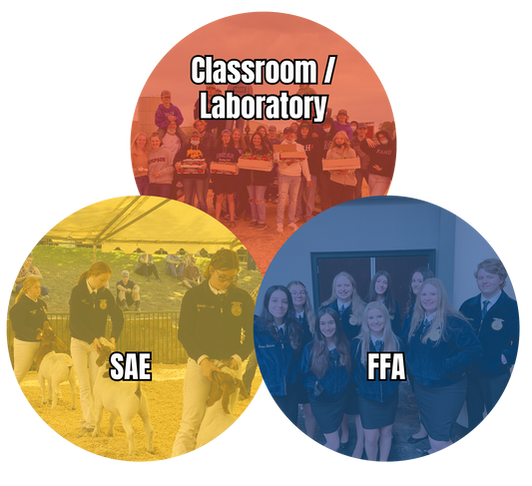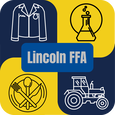Introduction to the FFA |
The 3-Circle Model of Ag Education |
Mission and Strategies
|
Agricultural Education uses a three-circle model of instruction. These are classroom and laboratory instruction, leadership development, and experiential learning. The successful integration of each of these three components results in a strong program that produces well rounded individuals who are prepared to be leaders in agriculture, business, and industry.
Official Dress - FFA's Uniform |



